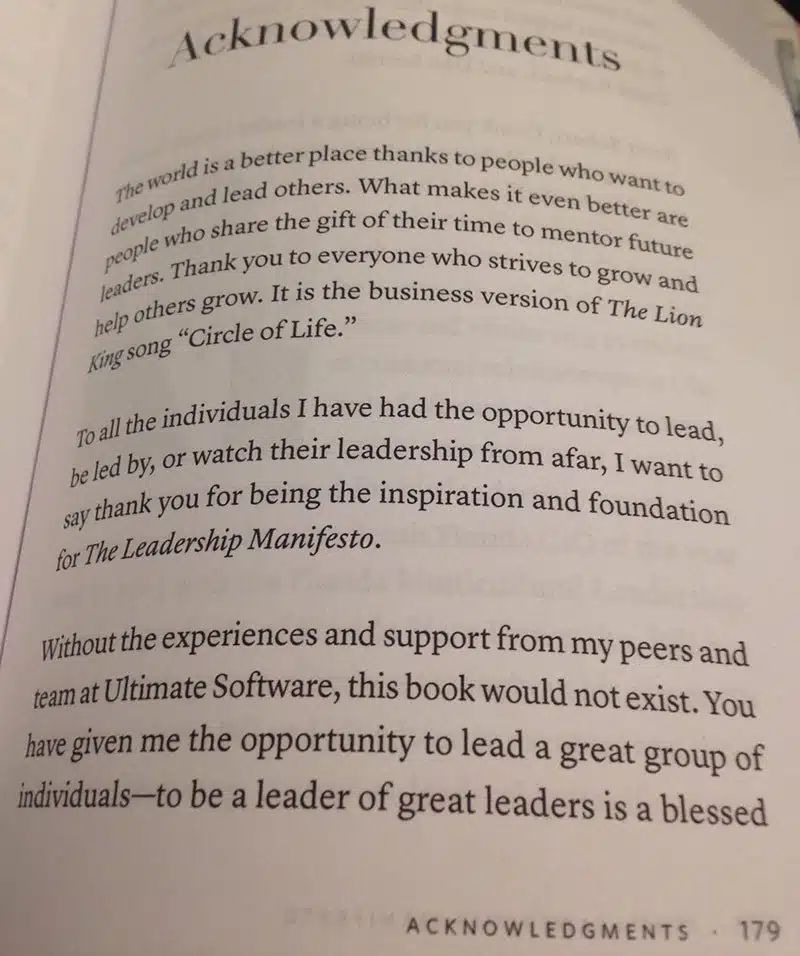Searching for the best book acknowledgements? You’ve come to the right place. Acknowledgements in books often reveal heartfelt gratitude and unique stories. They can be as compelling as the main narrative. In this article, we’ll explore some of the most memorable acknowledgements, highlighting what makes them stand out. Buckle up for an engaging journey through the world of literary gratitude.
Best Book Acknowledgements
Writing a book is a monumental task that requires dedication, perseverance, and lots of support. The acknowledgements section allows authors to give thanks to everyone who has contributed to their journey. But what makes for the best book acknowledgements? Additionally, if you’re looking for the best place to sell college books, finding the right platform can be just as crucial. Let’s explore how authors can craft thoughtful and memorable dedications, while also providing tips for selling college books effectively.
Understanding the Importance of Acknowledgements
Acknowledgements serve multiple purposes:
- They show appreciation for the help and support received.
- They offer readers insight into the author’s journey.
- They humanize the author, making them more relatable.
Authors often mention family, friends, mentors, editors, and even pets. Each acknowledgement can tell a story, adding depth to the book’s narrative.
Elements of Memorable Acknowledgements
The best acknowledgements often share similar characteristics:
- Specificity: Calling out specific contributions makes the thank-yous more meaningful.
- Emotion: Genuine emotion can make the section touching and memorable.
- Humor: A touch of humor can lighten the tone and make the acknowledgements enjoyable to read.
Let’s delve deeper into each element.
Specificity: Giving Details
When thanking someone, being specific about their contribution makes the acknowledgement more sincere and impactful. Instead of a general “thanks to my editor,” detail how they improved the manuscript, like “Thank you to Jane for her tireless edits and keen eye for detail that polished every chapter.”
Emotion: Making it Personal
Emotion is key to memorable acknowledgements. Expressing heartfelt gratitude can make the section touching. For example, “To my husband, John, your unwavering belief in me kept me going on the toughest days. This book exists because of your love and support.”
Humor: Lightening the Mood
A bit of humor can make acknowledgements memorable and fun. It can break up the more serious tone and add a personal touch. For instance, “Thanks to my dog, Max, for keeping my feet warm during those long writing sessions and ensuring I took regular breaks for walks.”
Examples of Exceptional Acknowledgements
Looking at examples of great acknowledgements can provide inspiration. Here are some that stand out:
J.K. Rowling in ‘Harry Potter and the Deathly Hallows’
Rowling’s acknowledgements are heartfelt and personal. She thanks her daughter for her patience and her editors for their guidance. This personal touch resonates with readers.
Stephen King in ‘On Writing’
King uses humor and specificity in his acknowledgements. He thanks his wife for rescuing his manuscript from the garbage and various friends and professionals for their specific contributions.
Structuring Your Acknowledgements
There’s no strict formula, but a structured approach can help:
- Start with the most significant contributions: Begin with those who had the biggest impact, like family and close friends.
- Move to professional acknowledgements: Thank editors, agents, and publishers next.
- Include specialized help: Acknowledge any experts or consultants who helped with specific aspects of the book.
- Finish with personal notes: Add any light-hearted or personal thank-yous at the end.
Acknowledging Professional Help
Authors often receive help from a range of professionals. Here’s how to acknowledge them:
- Editors: Detail how their input shaped the book.
- Agents: Highlight their role in navigating the publishing process.
- Publishers: Thank them for their belief in the book and their support in bringing it to market.
For example, “My editor, Sarah, your feedback transformed my manuscript into a polished piece. To my agent, Mark, your guidance through the publishing labyrinth was invaluable.”
Acknowledging Personal Support
Personal support is often the backbone of an author’s success. Here’s how to express gratitude:
- Family: Thank family members for their emotional and practical support.
- Friends: Acknowledge friends who provided encouragement or feedback.
- Mentors: Recognize mentors who offered guidance and wisdom.
For example, “To my parents, your unwavering support and belief in me gave me the courage to pursue this dream. To my best friend, Amy, your late-night chats and endless encouragement kept me going.”
Incorporating Unique Acknowledgements
Some acknowledgements stand out because they include unique or unconventional thank-yous. Here are a few ideas:
- Pets: Thank pets for their companionship.
- Local hangouts: Mention coffee shops or libraries where you did much of your writing.
- Inspirational figures: Acknowledge writers, artists, or other figures who inspired you.
For example, “To my local coffee shop, The Cozy Corner, your endless supply of caffeine and a quiet place to write were crucial to this book’s completion.”
Tips for Writing Acknowledgements
Here are some tips to help you write meaningful and memorable acknowledgements:
- Be sincere: Authenticity is key. Write from the heart and mean what you say.
- Keep it concise: Be thorough but avoid verbosity. Aim for brevity without sacrificing sentiment.
- Personalize it: Make each acknowledgement specific and personal to the individual.
- Balance emotion and professionalism: Find the right balance between heartfelt thanks and professional acknowledgements.
- Edit: Re-read and edit your acknowledgements to ensure clarity and impact.
Mistakes to Avoid in Acknowledgements
While writing acknowledgements, avoid these common pitfalls:
- Forgetting key contributors: Ensure no one important is left out.
- Being too vague: Lack of specificity can make acknowledgements feel hollow.
- Overwhelming readers: Avoid lengthy lists that can lose readers’ interest.
For example, instead of a vague “Thanks to everyone who helped,” be specific: “Thank you, Tom, for your insightful feedback during our weekly writing group meetings.”
Crafting the best book acknowledgements requires thought and care. By being specific, emotional, and even humorous, you can create a section that is memorable and meaningful. Use these guidelines to express your gratitude genuinely and impactfully.
Frequently Asked Questions
How do you write an impactful book acknowledgement?
To write an impactful book acknowledgement, start by making a list of the individuals and organizations who contributed to your work. Begin with those who were most influential. Be sincere in your gratitude and specific about the assistance you received. Personal anecdotes or specific contributions can make your thanks feel more genuine. Finally, keep it concise and heartfelt.
Who should you include in your book acknowledgements?
Include individuals who played a significant role in your writing process. This typically includes family members, friends, mentors, and colleagues. Don’t forget to thank your editor, publisher, and any researchers or assistants who helped. If any organizations supported your work, such as libraries or research institutions, acknowledge them as well.
Can you provide examples of beautifully written acknowledgements?
Beautifully written acknowledgements often strike a balance between professionalism and personal warmth. For example, J.K. Rowling in “Harry Potter and the Philosopher’s Stone” thanks her editor for valuable advice, her friends for their support, and even her daughter for inspiring her. Another example is Stephen King’s heartfelt thanks in “On Writing: A Memoir of the Craft,” where he recognizes his wife, children, and close friends for always believing in him.
Why are book acknowledgements important?
Book acknowledgements serve as a public way to thank those who contributed to the author’s work. They provide an opportunity to recognize the support and effort of others, which can deepen personal and professional relationships. Acknowledgements also give readers a glimpse into the collaborative nature of producing a book, making the author seem more relatable and appreciative.
What tone should you use in book acknowledgements?
The tone of book acknowledgements should be sincere, respectful, and heartfelt. While it’s essential to maintain professionalism, don’t shy away from expressing genuine gratitude. Use a conversational tone that reflects your personality but remains appropriate for all audiences. This balance helps in creating a meaningful and engaging section.
Final Thoughts
Best book acknowledgements offer a heartfelt glimpse into the author’s journey, making readers appreciate the effort behind the scenes. They serve as a genuine tribute to those who played vital roles. Crafting these acknowledgements thoughtfully can strengthen the reader-author connection. Authors should focus on being sincere and specific in their gratitude. Short, honest mentions often resonate more than lengthy lists. The best acknowledgements leave a lasting impression, celebrating the true spirit of collaboration and support.

